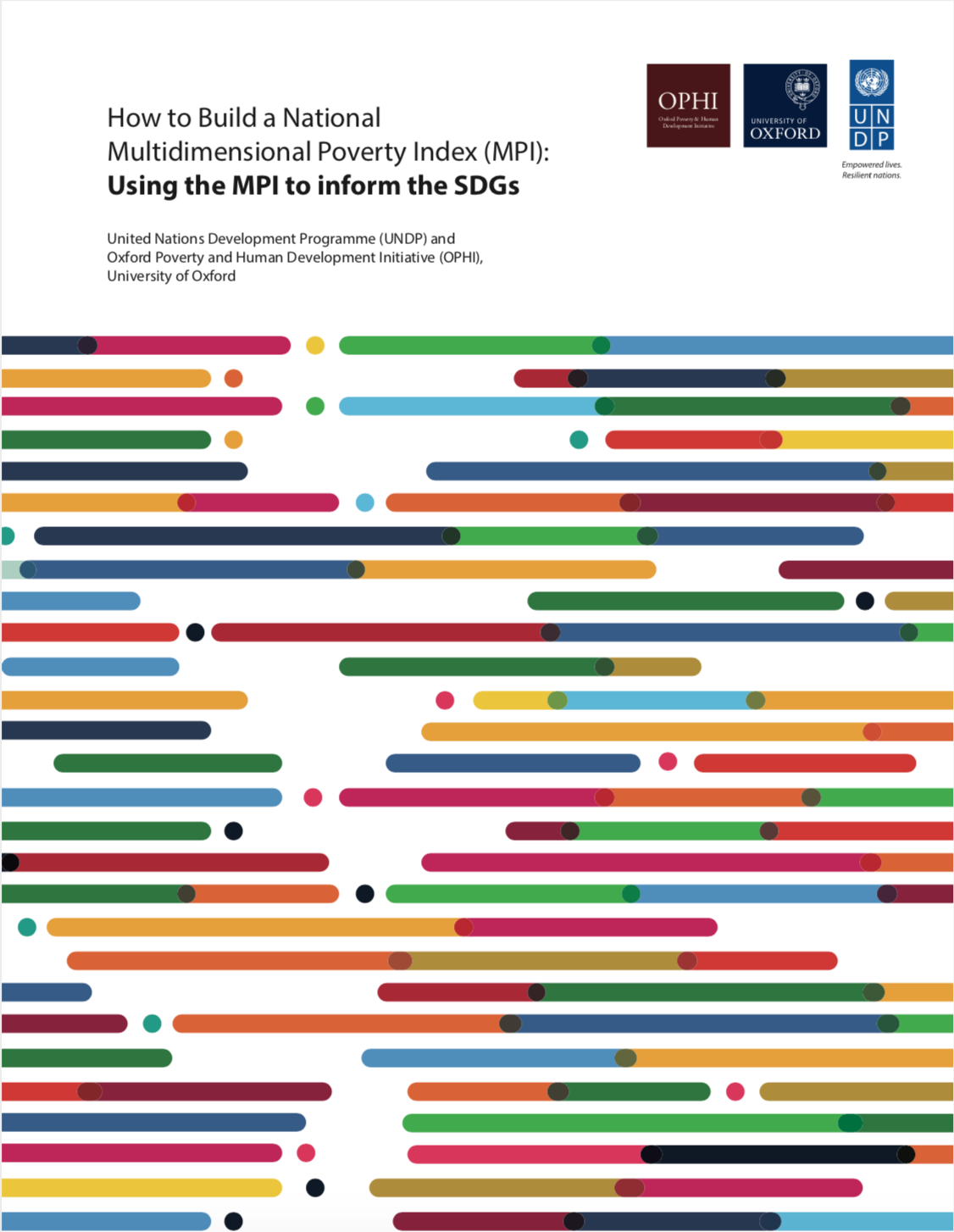How to Build a National Multidimensional Poverty Index (MPI): Using the MPI to inform the SDGs
This joint handbook by United Nations Development Programme (UNDP) and the Oxford Poverty and Human Development Initiative (OPHI), University of Oxford, provides practical guidance for policymakers, statisticians, practitioners and others seeking or engaged in developing a national Multidimensional Poverty Index (MPI).
It is also intended as a resource for academics, journalists and others interested in broadening their country’s poverty metrics, in line with the 2030 Agenda and Sustainable Development Goals (SDGs).
With the use of the national MPI, UNDP and OPHI hope to strengthen national capacities of policymakers, technical experts and other stakeholders to:
- Build a deeper, more holistic understanding of what poverty means in their national contexts, in complement with existing monetary measures;
- Track, report and review progress in reducing multidimensional poverty, in keeping with the 2030 Agenda SDG target 1.2;
- Use evidence to improve policies, reach the most severely poor and facilitate approaches to implement the SDGs that work across sectors to address the deprivations that leave people behind;
- Broaden national ownership and engagement in efforts to eradicate poverty in all its form.
Citation: UNDP and OPHI. (2019). How to Build a National Multidimensional Poverty Index (MPI): Using the MPI to Inform the SDGs. United Nations Development Programme (UNDP), and Oxford Poverty and Human Development Initiative (OPHI), University of Oxford.
Download the Russian, French and Spanish versions of the Handbook.



